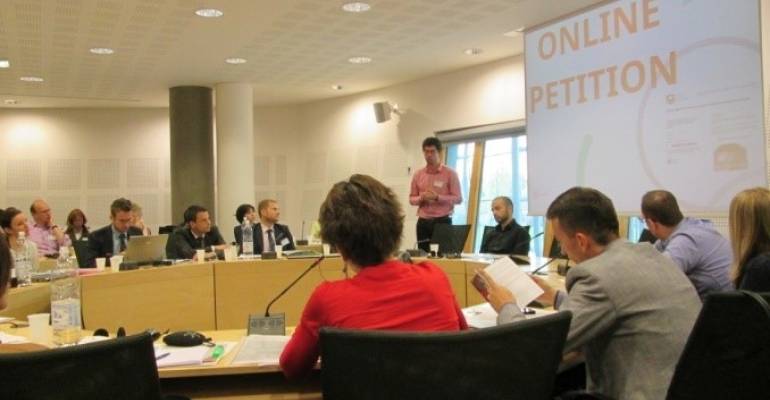ENS ANNUAL GENERAL CONFERENCE
Published: 2014/13/04 09:23

godisnja-konferencija-ensa
On 7-9 April 2014 European Network on Statelessness (ENS) Annual General Conference took place at the Palais of the Council of Europe. It consisted of the following events:
- ENS Annual General Conference
- ENS/UNHCR Statelessness Conference
- PACE/UNHCR Statelessness Hearing
On Monday, 7 April 2014 Annual General Conference: „Networking for Change“ was held.
The work of ENS, which has 87 members in 30 European countries, was briefly presented. The network itself will soon be registered and will thus soon be able to apply for various tenders related to this issue.
Past achievements of ENS are: research on the prevention of child statelessness, publishing guides on establishing procedures for determining statelessness, conducted training for trainers on stateless persons.
In 2014 ENS launched a global campaign for protection of stateless persons in Europe. Goal of this campaign is to raise awareness about this problem. An online petition was created and it’s goal is to collect as many signatures as possible which will be presented to the public and politicians. The other goal is to increase number of ENS members in a way to include even more prominent NGOs into the network.
Also, UNHCR's campaign that refers to statelessness and officially begins on 15 May 2014 was presented. This campaign has two objectives: to encourage European countries to adopt the Convention of 1954 and encourage all countries that have adopted Conventions relating to stateless persons (1954 and 1961) to adopt procedures for determining stateless persons until the end of 2016. All activities planned to take place during the 2014 will be presented at the first World Forum on stateless persons, which will be held in Haag on 15 – 17 September 2014.
On Tuesday, 8 April 2014 ENS/UNHCR Statelessness Conference was held.
Boriss Cilevics (member of the Committee for Legal Affairs and Human Rights of the Council of Europe) said that legislation of most countries provides the issuance of special travel documents for stateless persons, but in practice this is often not implemented because states do not have mechanisms for determining status of stateless persons.
Nils Muiznieks (Commissioner for Human Rights of the Council of Europe) - It is estimated that over 7,000 children were born in Syrian refugee camps and all of them are at risk of statelessness because they are away from their home countries.
Inge Sturkenboom (UNHCR) - presented work of UNHCR on this issue and pointed out that there are states - members of the Council of Europe, which have not adopted any of the Conventions (1954 and 1961) relating to the prevention and protection of stateless persons.
Angelika Nusberger, Judge at the European Court of Human Rights explained Court’s procedures and activities, and how much the Court is actually limited in the cases it could act. The Court has jurisdiction to act only within the limits of convention, after exhausting all remedies of the state where the person is located. It is also important that in all cases there is some form of discrimination.
On Wednesday, 9 April 2014 PACE/UNHCR Statelessness Hearing was held UNHCR / PACE (Parliamentary Assembly of the Council of Europe) organized a debate regarding issue of statelessness.
UNHCR introduced its campaign, which aims to reduce the number of stateless persons for a period of 10 years.
Boriss Cilevics (member of the Committee on Legal Affairs) said that this goal of UNHCR is ambitious, but on the other hand is achievable in Europe.
Laura van Waas, who spoke in front of the ENS, proposed that countries must and may help to prevent statelessness among children.
Proposal of ENS in what way to obtain protection among children has already been released as a manual-guide, and is on the blog: www.statelessness.eu/resources/preventing-childhood-statelessness-europe-issues-gaps-and-good-practices
